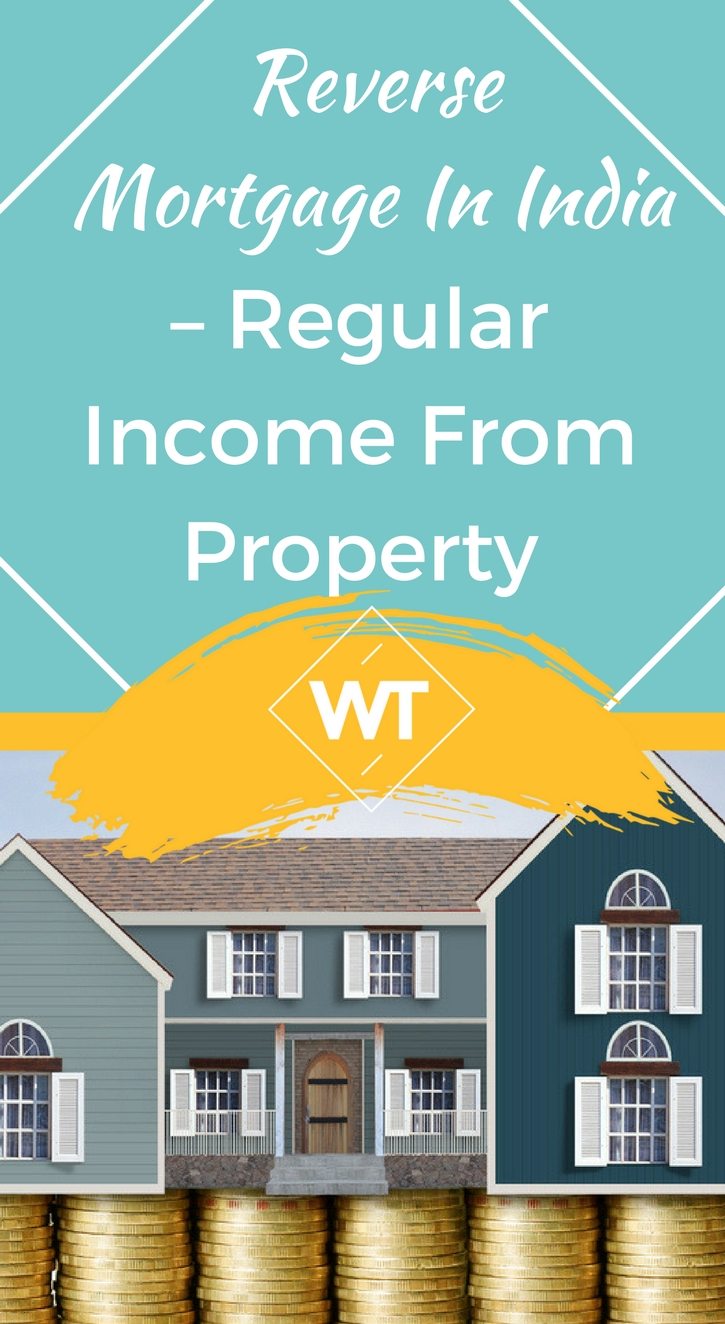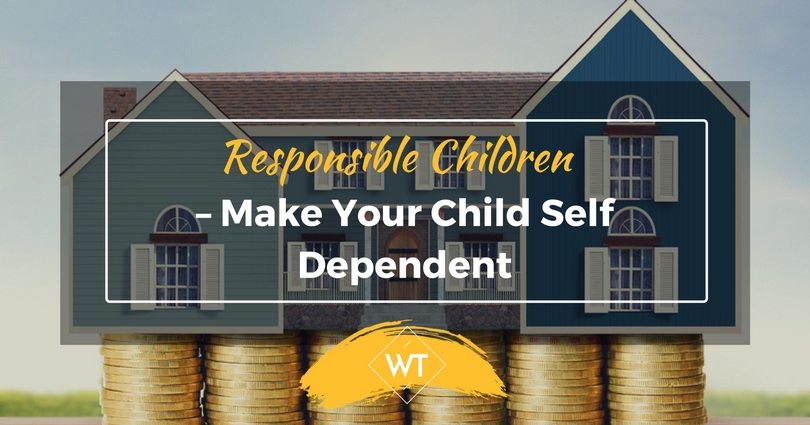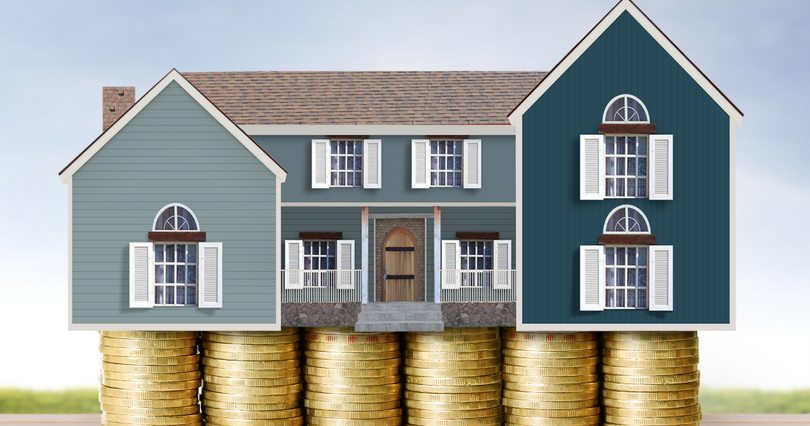Reverse Mortgage in India – Regular Income From Property

Curious about Reverse Mortgage in India ? Read on. India has been growing fast in the past decade which has also brought in higher inflation, changing lifestyles, culture, etc. If we just turn the time machine by 4 decades, the contrasts are clearly visible.
Earlier people preferred living in their home town in joint families, but now people are migrating to cities and follow a nuclear family system.
Senior citizens and retirees today have to face a lot of challenges in the new environment. Their life span is longer and medical costs are rising, which is over and above the consumer price inflation which is in double digits. Given the lack of social security and pension for those in private sector the challenges can be multifold after a person decides to retire.
Senior citizens who don’t have a pension or a regular income are forced to depend on investment income, savings or rely on their children for support. There are a few who own a property, but cannot sell or rent it out, because they have been living there for years or even decades and still need a roof for themselves.
Take the case of Mr. Banerjee who had a property in a scenic location in the suburbs of Kolkatta. He has been a proud owner of a house which he bought 25 years ago and continues to live there during his sunset days. He gets a miserly pension which is just enough to pay the bills.
His son migrated abroad a few years back and has a family in US, while his daughter also moved with her husband in US. Mr.Banerjee was able to get regular remittances from his son and daughter in the past, but now they are not able to shell out much because both have kids and other additional responsibilities.
Moreover, in 2009 his son had lost a job and took a short break and returned back in 2010. Given these circumstances Mr.Banerjee no longer wants to depend on his children for his living expenses and daily needs.
What is the solution available to him? Selling the house would be a nightmare because rents in comparable houses is atleast Rs.12,000. Renting a portion of the house is not feasible since it is not big enough and they need the space. A friend of Mr. Banerjee suggested him to look at Reverse Mortgage.
Reverse mortgage options are common in US, but reverse mortgage in India is a recent trend and a good option for senior citizens
What is Reverse Mortgage?
A reverse mortgage enables a senior citizen to receive a regular stream of income from a lender (a bank or a financial institution) against the mortgage of his home. This is just the opposite of a regular home loan.
However, in this case you already own the house without any loan or encumbrance on it. A reverse mortgage is an ideal option which creates a regular income out of a property which is not liquid in nature.
How Reverse Mortgage in India works?
When the home is mortgaged to the bank, the bank arrives at the fair value of the property based on condition of the house, demand for the property, location, current prices, etc.
Once the fair value is determined, the bank disburses a loan amount in the form of periodic payments – monthly, quarterly, etc. The margin and interest costs are also factored in to this just like any other loan.
The following guidelines would be followed in general for reverse mortgage in India (with a few variations depending on the bank)
• Loan Amount: Up to 60% of the property value
• Tenure: Generally 10-15 years (Some banks offer 20 year tenure)
• Periodicity of Payments: Monthly, Quarterly, Annual or Lump sum loan payment
• Property Revaluation: Undertaken once every 5 years.
- If valuation has increased the borrowers can increase the loan amount. An incremental lump sum is paid.
• Equity: The equity or individuals interest in the house decreases as they receive more payments. This is just the opposite of home loan where equity increases with more and more principal payments.
Eligibility Criteria for Reverse Mortgage in India
Retirees who are planning to go for a reverse mortgage loan must know the eligibility criteria from the bank or lender however the broad criteria are common. In current times where people retire in their 40s or 50s this options may not be available for them because the minimum age is 60 and a co-application can be 58.
The eligibility criteria for reverse mortgage in India are given below:
• Age: House owner’s age should be above 60. If spouse is a co-applicant, the she should be above 58 years.
• Ownership and Clear Title: The property titles should be clear and be free from encumbrances. The prospective borrower should be the owner of the property.
• Life of the property: Should be minimum 20 years
• Property should be self acquired and occupied
• Property should be the permanent and primary residence
The property can be either a residential house or a flat located anywhere in India. In addition to the above each bank or lender could have additional criteria in accordance with their lending norms.
Settlement of a Reverse Mortgage
A reverse mortgage loan becomes due in the following situations:-
- When the last surviving borrower dies (Assuming A & B who are senior citizens are borrowers, if A dies, and subsequently B dies, after B’s death the loan gets settled)
- If borrower chooses to sell the house
In a case where both borrowers die the bank can proceed in two ways
Option 1: At first the bank gives legal heirs (borrower’s children or other heirs) the option to settle the loan along with interest.
Option 2: If the legal heirs are unable or not interested to settle the loan, the bank can sell the property to settle the loan plus interest and other costs
- Any surplus from sale proceeds left after settling the loan and interest costs would be passed on to the legal heirs
- Any deficit or loss incurred where sale proceeds are lower than the loan principal and interest, the loss is borne by the bank.
In case one of the borrowers die the other co borrower (spouse) can stay in the house. The settlement of the loan normally is done only after the death of the last surviving borrower.
The deficit or loss discussed above is not common and could happen where the bank’s original estimation is unrealistic and deviates from the market prices. Given that banks lend only up to 60% of property value, even in a worst 40% crash in property prices the bank should be able to recover its money.
Pros and Cons of Reverse Mortgage in India
| Advantages | Disadvantages |
|
|
Recent Developments
Courtesy: MyDigitalFC.com May 25, 2011
The National Housing Bank (NHB) is in discussions with the ministry of finance to exempt the annuities provided to senior citizens under its Reverse Mortgage Loan Enabled Annuity (RMLEA) product from taxation.
The product launched in 2009 has remained a non-starter with only Rs 30 crore sanctioned as on March 31. The RMLEA product is an improved version of reverse mortgage where a tripartite arrangement is signed between a bank, insurer and the senior citizen.
In this scheme, the lending institution provides the loan amount to an insurance company which in turn will give annuity to the borrower. After the death of the borrower, the annuities are stopped and the insurance company will repay the loan amount (purchase price) to the financial institution. The new scheme looks more promising and industry experts are positive about it.
However, its too early to judge because the structure is little complex compared to a plain vanilla reverse mortgage and there are issues related to taxation of annuities. Today’s senior citizens have to be more objective and focused on their individual needs because unlike olden days their kith and kin may not be around or helpful always.
Moreover, it’s a good idea to enjoy the fruits of your life savings locked in your property post retirement.









Leave a Reply